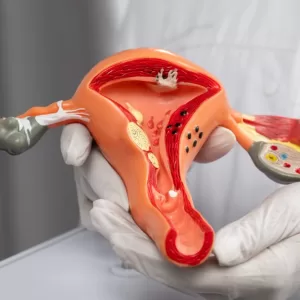By Dr. Trupti Kharosekar, Fertility and IVF Specialist
In the ever-evolving field of assisted reproductive technologies (ART), advancements in genetic screening techniques have emerged as a game-changer for improving outcomes in In Vitro Fertilization (IVF) treatments. These sophisticated methods offer valuable insights into embryo health, helping fertility specialists select the most viable embryos for implantation. Let’s explore how these advancements are reshaping the landscape of IVF and benefiting hopeful parents.
Understanding Genetic Screening in IVF
Genetic screening techniques in IVF primarily involve the analysis of embryos before implantation to identify genetic abnormalities or chromosomal anomalies. These screenings are crucial for several reasons:
- Preimplantation Genetic Testing (PGT): Formerly known as Preimplantation Genetic Screening (PGS), PGT examines embryos for chromosomal abnormalities like aneuploidy (incorrect number of chromosomes), which can lead to implantation failure or miscarriage.
- Preimplantation Genetic Diagnosis (PGD): PGD focuses on detecting specific genetic conditions or mutations, such as cystic fibrosis or Huntington’s disease, in embryos created through IVF. This helps couples at risk of passing on genetic disorders to have healthy offspring.
Types of Genetic Screening Techniques
- Next-Generation Sequencing (NGS): NGS allows for comprehensive analysis of the entire genome of embryos, providing detailed information about genetic abnormalities and improving the accuracy of embryo selection.
- Comparative Genomic Hybridization (CGH): CGH analyzes cells from embryos to identify chromosomal abnormalities, offering high-resolution genetic screening capabilities.
- Fluorescence In Situ Hybridization (FISH): FISH is a technique that uses fluorescent probes to visualize specific regions of chromosomes, aiding in the detection of numerical abnormalities.
Benefits of Advanced Genetic Screening
- Improved IVF Success Rates: By selecting embryos with the highest likelihood of implantation and healthy development, advanced genetic screening techniques enhance IVF success rates.
- Reduced Risk of Genetic Disorders: PGD allows couples carrying genetic mutations to prevent the transmission of hereditary diseases to their children, promoting the birth of a healthy offspring.
- Enhanced Patient counselling : Genetic screening provides valuable information that enables fertility specialists to counsel patients more effectively about their treatment options and potential outcomes.
The Role of the Best IVF Hospital
Choosing the best IVF hospital is crucial when considering advanced genetic screening techniques. Look for a facility that offers state-of-the-art genetic testing technologies and has a team of experienced fertility specialists who can interpret and apply genetic screening results effectively.
Advance Genetic Screening
As technology continues to advance genetic screening in IVF holds promising possibilities:
- Single-Cell Analysis: Advancements in single-cell genetic analysis techniques may further improve the accuracy and reliability of embryo screening.
- Non-Invasive Testing: Developing non-invasive methods for genetic screening, such as analyzing embryonic DNA from culture media, could minimize the need for embryo biopsy.
Advanced genetic screening techniques represent a significant advancement in IVF, offering couples a greater chance of achieving successful pregnancies and healthy babies. By partnering with the best IVF hospital equipped with cutting-edge technologies and expertise, hopeful parents can embark on their fertility journey with confidence, knowing they are receiving the highest standard of care and support.
For comprehensive genetic screening services and expert guidance in IVF treatment, consider consulting with the best IVF hospital renowned for its commitment to innovation and patient-centered care.





